
We kindly inform you that, as long as the subject affiliation of our 300.000+ articles is in progress, you might get unsufficient or no results on your third level or second level search. In this case, please broaden your search criteria.

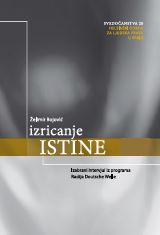
Interview by Želimir Bojević, with: 1. Bošković, Aleksandar 2. Popov, Nebojša 3. Radovanović, Dobrivoje 4. Veljak, Lino 5. Zajović, Staša 6. Stanovčić, Vojislav 7. Golubović, Zagorka 8. Gruden, Tamara 9. Arsenijević, Vladimir 10. Bogosavljević, Srđan 11. Đorđević, Mirko 12. Lukić, Svetlana 13. Gredelj, Stjepan 14. Simović-Hiber, Ivana 15. Hellman, Matias 16. Lučić-Čavić, Milica 17. Resanović, Aleksandar 18. Biserko, Sonja 19. Savić, Obrad 20. Kandić , Nataša 21. Popović, Đorđe 22. Kovačević-Vučo, Biljana 23. Mlađenović, Lepa 24. David, Filip 25. Perović, Latinka 26. Milosavljević, Olivera 27. Krmpotić, Vesna 28. Milić, Jelena 29. Prpa, Branka 30. Singer, Aca 31. Kovačević, Živorad 32. Janjić, Dušan 33. Pantić, Danijel 34. Barać, Verica 35. Kljajić-Imširović, Jelka 36. Gavanski, Bogdan 37. Matić, Jovanka 38. Tešanović, Jasmina 39. Knežević, Ana 40. Blagojević, Marina 41. Srbljanović, Biljana 42. Jevremović, Zorica
More...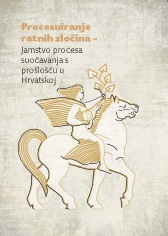
Neka od najtežih kršenja ljudskih prava mogu počiniti one institucije države čija je zadaća i svrha postojanja zaštita građana od nasilja i nepravdi. U pravnoj državi te institucije su, prije svega, policija i sudovi. Postupci korumpiranih policajaca i sudaca s pravom se doživljavaju kao posebno nepravedni i nemoralni. Ljudi koji su školovani i plaćeni da nepravde spriječe i ispravljaju, koriste se svojim znanjem i položajem da nepravdu ozakone i, često, da joj daju svoj doprinos. Pod korumpiranošću se obično podrazumijeva pristrano postupanje protivno pravilima i zakonima na koje se osoba javno poziva i koje je prema svom položaju dužna poštovati zato što je podmićena novcem. Osim materijalnog koristoljublja, pristrano postupanje protivno postojećim pravilima, zakonima i moralnim načelima može biti potaknuto sviješću da je takvo postupanje politički podobno, a da je ostajanje pri moralnim načelima nezdravo za karijeru. Taj oblik ‘’legalizirane korupcije’’ mnogo je opasniji jer predstavlja bolest društva, a ne samo izolirane slučajeve nepoštenih i nemoralnih pojedinaca.
More...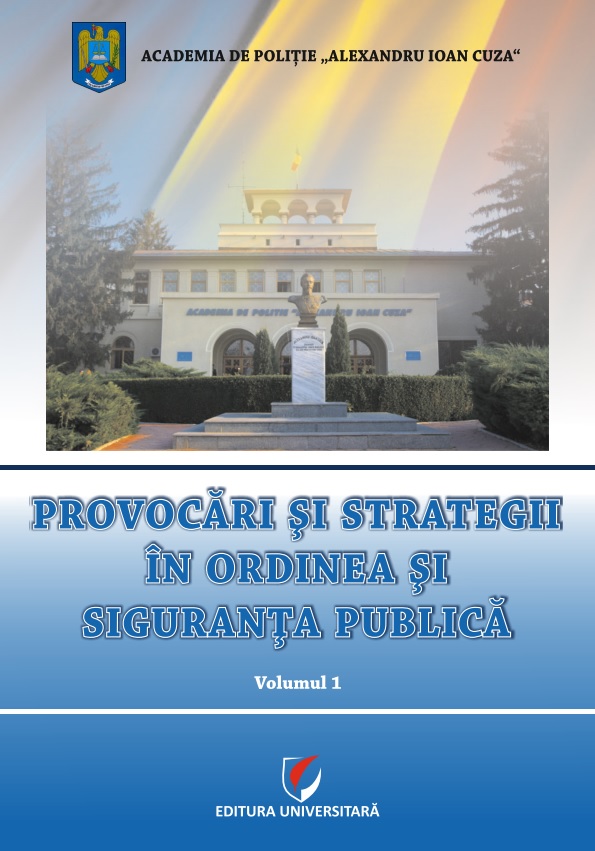
Using the darkweb can be challenging for inexperienced users, as this network is often associated with illegal and dangerous activities. However, there are a number of artificial intelligence apps that can help users navigate the darkweb safely and find important information. These applications use advanced data analysis and natural language processing techniques to identify trusted websites and resources and assess the risks associated with their use. The use of the dark web for criminal purposes is associated with illegal activities such as drug sales, human trafficking, money laundering and others. Artificial intelligence applications can provide advanced tools and technologies to facilitate these activities, providing anonymity and security to users.
More...
With the emergence and development of with artificial intelligence systems we are once again in the situation where we need to re-evaluate the system of criminal liability and the subjects of criminal law. The emergence and development of artificial intelligence raises new challenges to the penal law system. Challenges related to the liability for criminal acts committed with the help of AI systems and in relation to the necessity of developing suitable legal provisions in order to legislate this new dimension of human life. The development of AI systems may also prove to be a very useful tool for law enforcement authorities in order to tackle crime and the new trends in cyber criminality.
More...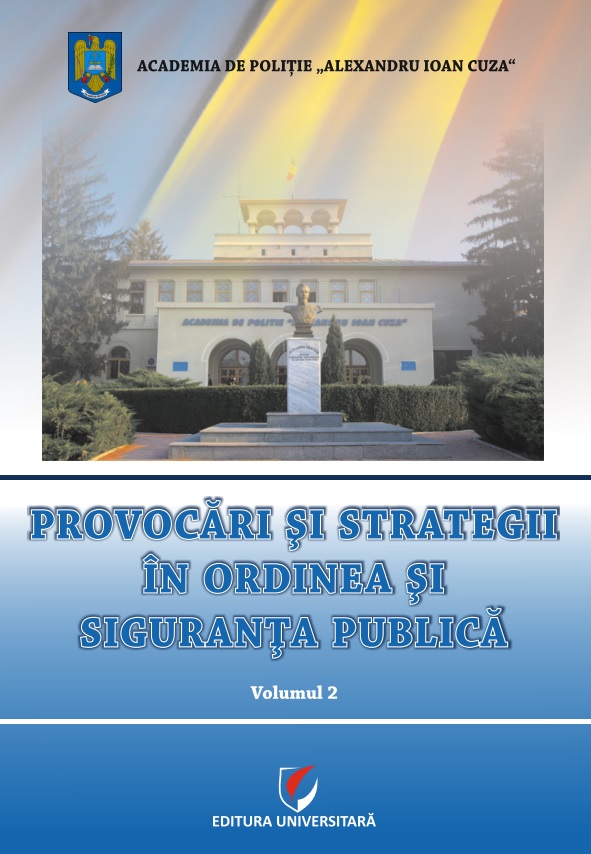
The profile of a spy of calibre in the history of Romanian intelligence is the focus of a qualitative meta-analysis that proposes to focus attention on his professional performance recorded in successful operations. It is unfair to place his world-class work in the background and to highlight the ideas that he damaged NATO, that he was manipulated by the French intelligence services for the benefit of the Russians. The hypothesis is structured around the research question: is Mihai Caraman a victim of history or not? Suspicions are woven around the good French-Romanian relations during the De Gaulle regime, Caraman can boast a prodigious intelligence gathering activity. His indisputable merits build and maintain a leader of vocation, affirmed in the creation and coordination of the Network that bears his name.
More...
We chose this subject because we believe it represents a head topic for public order activity, especially regarding law enforcement. In the content of the article, we decided to approach some of the similarities in the provisions of the Criminal Code, Law no. 61/1991, respectively Law no. 4/2008.Analyzing the normative framework from the perspective of law enforcement by public order bodies, certain existing challenges can be found during the execution of the missions in terms of the legal framing of the facts, respectively risks that fall on the erroneous application of a misdemeanor punishment for committing an act of a criminal nature. At the same time, it was analysed the managing of a specific case in the sports environment by the bodies empowered to apply sanctions or to ascertain the commission of the act (eg: the statements of former coach Oprița Daniel from the fall of 2022, in the context of confrontations between the gendarmes and CSA Steaua supporters which resulted in acts of violence).
More...
Nowadays, social media represents the place where all the activities of an individual take place (from opinions about an event, musical preferences, intentions, public debates to passions), he presents and transpose his life from the real world to the virtual one. At the same time, social media is a threat to security, being a method by which terrorist activities, riots, abuses are organized and coordinated. In order to understand the new security environment and to respond to the challenges, the intelligence services introduced the concept of Social Media Intelligence, through which they can understand and prevent events, can analyze the mood of the society and its preferences.
More...
At the center of the concerns of the public authorities are public order and the safety of the citizen, as major benchmarks that condition the proper functioning of the competent state bodies. A particularly important place is occupied by ensuring and maintaining public order and public security, the administration of bodies whose attributions include the defense of the political regime, the interests of citizens, measures that contribute to the execution of laws and court decisions, good coexistence in society, as well as good functioning of state services. Moreover, public order is a state of law and fact that allows the achievement of the balance based on the social consensus necessary for the optimal functioning of the social whole under the conditions of internal legal regulations, consecrating the defense and respect for the fundamental rights and freedoms of citizens, public and private property, to the other supreme values, in order to promote and affirm social progress in a democratic society. Ensuring public order represents an essential requirement of internal stability that guarantees the provision of conditions corresponding to the establishment of a state governed by law. Of particular importance in the performance of the function of guaranteeing and ensuring public order, the security of the person and society is the coordination activity of the bodies meant to ensure public order.In other words, ensuring public order is a social necessity, carried out through specific activities of special bodies - public order forces, which represent authorities holding powers and attributions in matters of public order and which, by law and other normative acts, are confers tasks in the exercise of the state police right.
More...
In general, rail transport is regarded as one of the safest modes of transport, especially when compared to road transport – a fact demonstrated by the reduced number of accidents and resulting casualties in the rail system. However, in recent years, new challenges have arisen for the Rail Transport Police in terms of passenger safety and protection, as many cases of drug possession and use have begun to emerge, particularly among young people who use means of rail transport during the summer season or at various concerts (UNTOLD, Electric Castle, etc.) or in the case of supporters of football teams traveling by train. This article draws attention to such a phenomenon, as well as the need to adapt police prevention and combat measures accordingly (increasing visibility in the field, use of dogs specialized in drug detection on platforms, strengthening intra- and inter-institutional cooperation).
More...
The study approach and deals with gambling addiction and the correlative criminal predisposition, from the perspective of the practitioner - specialized state authority for the enforcement of the criminal law. In this context, the aspects highlighted in the study will be passed through the filter of the criminal law, but the criminological sphere specific to this type of subjects will not be left unapproached, with all the social implications arising from manic behavior.The study will be structured in four chapters (and subsections where appropriate), as follows: I. Introductory aspects; II. Social aspects; 2.1 The behavior of the subject in the family environment, 2.2 The behavior of the subject at work; III. Criminal and criminological aspects; 3.1 The appearance of the criminal thought; 3.2. Types of crimes committed depending on the subject's field of activity; 3.3 Aspects of judicial practice; IV. Conclusions and proposals; Bibliography. The study as a whole is addressed to both theoreticians and practitioners, being able to become a pillar of reference in the matter of combating the crimes committed by this segment of subjects and, why not, in the matter of preventing niche criminality.
More...
Nowadays, worldwide, there is a major increase in losses caused by natural disasters, in a situation where the frequency of occurrence of destructive natural phenomena is relatively constant. It can be said that we are still powerless in the face of natural disasters and that we have to learn to live permanently and consciously with the risk of producing such destructive phenomena. Reducing the vulnerability of urban communities to disasters is a complex process and requires an integrated approach involving prevention, preparedness and emergency response measures. This is also a major concern in disaster risk management. Urban communities are exposed to a range of disaster risks, such as earthquakes, floods, fires, storms and heat waves, and these can have serious consequences for people's lives, the environment and Property.There are a number of measures that can be taken to reduce the vulnerability of urban communities to disasters, as follows:• Identification and assessment of risks specific to the community• Sustainable urban planning• Making investments in infrastructure• Early warning systems• Educating and informing the community• Development and implementation of evacuation plans• Development of a communication network• Preparing the population to respond in case of emergencyBy taking such measures, urban communities can become more resilient to disasters and better prepared to deal with emergencies.The negative effects generated by disasters should rather be seen as an opportunity for the initiation of regional sustainable development programs. Rather, disasters should be seen as an opportunity to implement profound social and economic change.
More...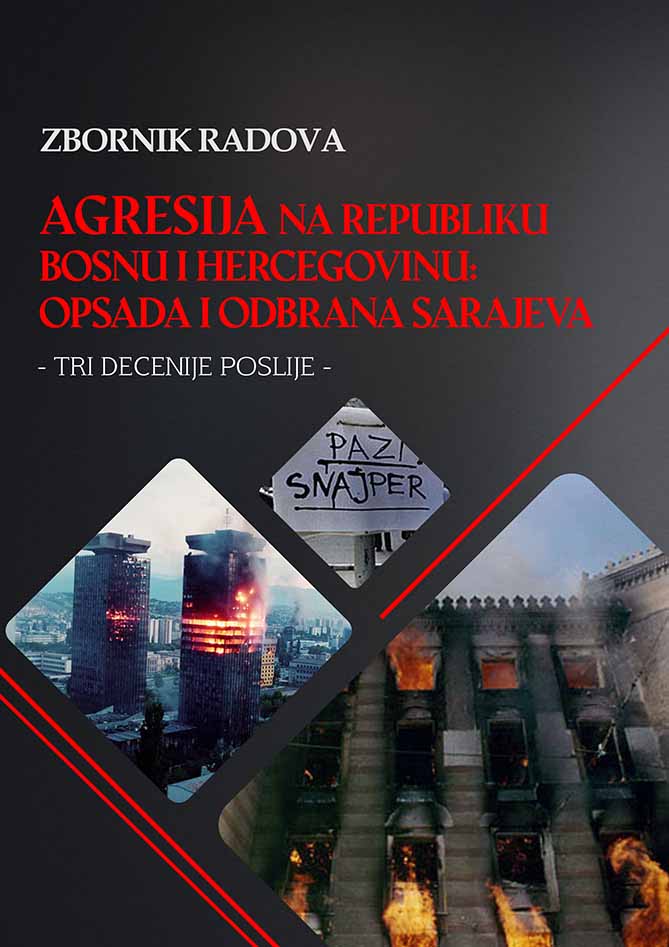
The political goal of the total demographic extermination of the Bosniac Muslim people in Bosnia and Herzegovina is evidenced by the criminal practice on the part of the aggressor, which tried to systematically persecute said people from the territory in which they always lived. Such a goal could not be achieved in another way, but by criminal methods of waging warfare. In order to cover up the aggressive nature of the military force use against the Republic of Bosnia and Herzegovina, presenting it as a civil war within an internationally recognized country, the Belgrade regime established a so-called Republika Srpska para-state and constituted an army of the said para-state, which made an integral part of the Army of the Federal Republic of Yugoslavia (FRY). The unjust and criminal political and military goals determined and directed the war of aggression primarily against the non-Serb civilian population, and only than against the other armed forces, given that most of the killed victims were civilians. The unjust policy based on the great-Serbian ideology against Bosnia and Herzegovina continued even after the signing of the General Frame-work Agreement for Peace in Bosnia and Herzegovina (hereinafter the Dayton Agreement), and continued up to the present day. This is just another proof that Serbia has not yet sincerely and in good faith recognized territorial integrity and the sovereignty of Bosnia and Herzegovina, indicating that all anomalies and blockades in the implementation of the Dayton Agreement are a signal that Serbia, as of this day, does not consider its internationally recognized borders as being final. Such policy of the Belgrade regime is most concretely and indeed most destructively manifested in their attempts to cover up war crimes and glorify war criminals, aspiring to shifting the blame for starting the war and its consequences onto victims, and in that regard to equalize responsibility of the aggressor and Bosnia and Herzegovina defenders, ultimately to change the character of war. It is precisely the reason why the judiciary in the states that acted as aggressors against Bosnia and Herzegovina in the period 1991-1995 was burdened with anomalies resulting in blockades, even the setbacks in the commitments from the Dayton Agreement. This is the reason why trust cannot be built and reconciliation cannot be achieved on such foundations between the peoples and states of the Western Balkans. In that context, various concrete cases of unjust and illegal protection of war criminals should be analyzed, as well as numerous indictments fabricated by the Serbian regime and the Bosnia and Herzegovina entity of Republika Srpska should be considered. Obvious example of such practice is the indictment, including its confirmation, related to the events in Sarajevo’s Dobrovoljačka Street on May 3, 1992.
More...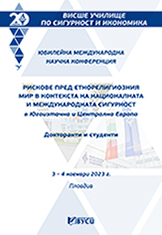
The presentation contains an analysis and conclusions regarding the synchronization of national legislation with that of the European Union (EU) regarding the processing of personal data in connection with police registration. Proposals have also been made to change the legal basis.
More...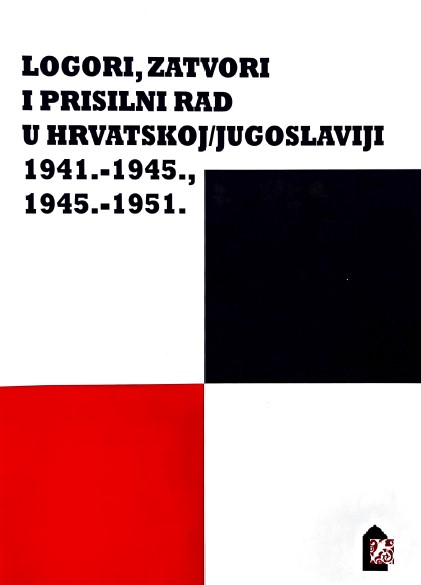
Restrictions to freedom and forced labour in the Croatian, that is Yugoslavian, legal system following the Second World War, during the period of “National Democracy,” was determined by a series of decrees, resolutions, and laws. From 1945 to 1951, the Yugoslavian penal code recognized four types of non-free labour: forced labour without the removal of personal freedom, forced labour with restrictions to personal freedom, corrective work and socially useful work. This article, on the basis of sources, literature, and above all the most important decrees, resolutions, and laws applied in Croatia, and elsewhere in Yugoslavia, during the period of “National Democracy”, from 1945-1951, reviews the matter of state repression and the question of the restrictions to freedoms and forced labour in the penal code.
More...
The work follows the evolution of the position of political convicts in Serbia in post-war period. Shortly after the end of the war, the position of political convicts was extremely bad and the prisoners were often subject to brutal torture. Prison conditions underwent gradual evolution in the period between 1953 and 1985, so that since the beginning of 50s, and especially during 60s and 70s, they grew better and better. Still, their improvement was limited by material as well as political and ideological factors and remained behind the standards of the west democracies.
More...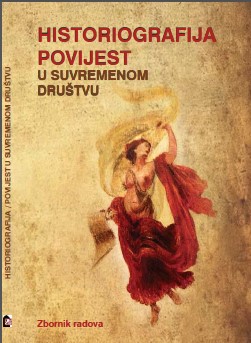
Author analyzes discursive praxis in confronting the past and reasons why such approach is considered as a stabilizing concept within historiography. The example of holocaust and its implementation within national and transnational memory of the entire humankind shows how history and memory coexist. Namely, a historiography is inspired by a new model of ethical awareness that imposes revealing of a negative memory in order to avoid repetition and manipulation of the remembrance, especially regarding possible retroactive justification of historical crimes. Generally speaking, such a concept of confronting the past opens question about “negative memories”, and maintains idea that not speaking about historical evil enables its possible return in the future. From the perspective of historical memory one can say that historiography today emphasizes its ethical orientation. Historians today do not have a monopoly on interpreting the past, and this fact enables dialogue between historiography and other scholarly disciplines. Namely, during the last twenty years many sociologists, anthropologists, psychologists, literary scholars and philosophers contributed a lot in the investigation of contradictions and anomalies that accompany transformation of a living communicated remembrance to the commemorative and institutionalized memory. The question of transformation of individual remembrance to collective memory is rather well investigated in the relation to the meaning and significance of social obligation towards a social group, especially regarding question of merging or debarring of certain memories. Author also points out some examples of making the memories in Croatia during the transition period in 1990s’. Moreover, question of rememorizing the World War Two (1941-1945) is discussed in comparison to the rising of social importance of the remembrance of the Homeland War (1991- 1995), especially in the relation to the decisions of the International Criminal Tribunal for the former Yugoslavia. The fall of the Berlin wall in 1989 and collapse of communism in the Central and South-Eastern Europe provoked numerous nationalistic re-interpretations in the small local historiographies. Consequently, some of the Croatian historians during 1990s’ treated their nation as a victim, and confronting the past was rather strongly present in the investigation of victims of communism 1945- 1990, which was necessary at that time because of the need to create a social balance. Nowadays some recent studies show that Croatian historians are more open towards new theoretical approaches within the research field of culture of remembrance. Finally, there is an open question of memorial function of the Homeland War 1991-1995. Namely, many analysts think that international justice has failed in the case of processing crimes during the Yugoslav war. If the International Court of Justice took more clear and undisputable position regarding crime against peace that was committed by Milošević’s Serbia during the aggression to Croatia and Bosnia and Herzegovina, we could do much more effective work regarding negation of mass crimes and recurrence of genocide in Europe.
More...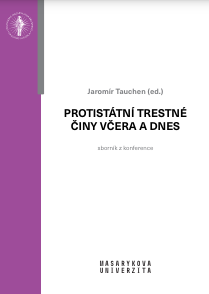
The article deals with the definition of the legal regulation of insult of the President of the Republic and its punishment in the territory of the Czech Republic after 1945 up to the present. Due to the fact that such a definition has not always been made exclusively by legislation of a criminal law nature, the contribution will also focus on legislation of an administrative and private nature. During the elaboration of the contribution, mainly explanatory memoranda to the laws that introduced, changed or deleted the legal regulation of insulting the President of the Republic will be drawn. Periodical comments explaining the individual starting points of these legal regulations and related case law will also be a necessary helper. This will show an overall view of the legal regulation of insults of the President of the Republic in the period under review.
More...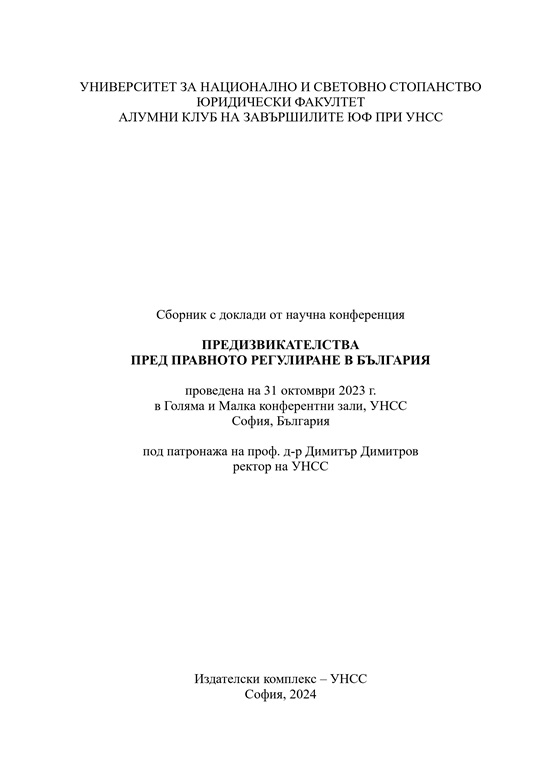
In Interpretative Decision No 5/2021, the SCC ruled on the labour law issue of the application of the new ground for dismissal of pedagogical specialists, in respect of which a contradictory practice of the SCC itself has accumulated since 2016. Since dismissal ground is conviction for a crime, the problem has significant criminal law aspects that the SCC has not taken into account, which is why the argumentation of the decision and the dissenting opinion suffer from serious imperfections.
More...
The current Bulgarian legislation empowers police authorities to detain a person deemed to have committed a crime. Exercising such power, in practice, results in restriction of one of the most important fundamental rights guaranteed by the Constitution of the Republic of Bulgaria, namely, the right to personal liberty and inviolability. A written order is issued for the detained person, which by its nature represents an individual administrative act, and, as such, must meet the five requirements for legality of administrative acts. The present paper focuses on the obligation of the police authorities to observe the substantive law, to state promptly the reasons for detention, as well as to eliminate any form of abuse of power entrusted to them. For the purpose of preventing unlawful and arbitrary detention, police authorities ought to comply with the European Convention on Human Rights and European Union law, as well as take into consideration the relevant case-law of the European Court of Human Rights and the case-law of the Court of Justice of the EU.
More...